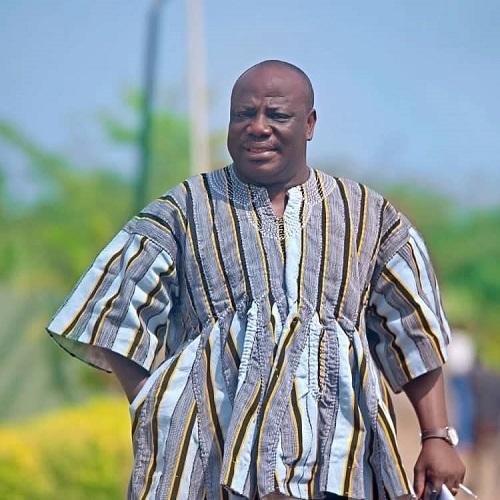Hot!
Only Mahama solved ‘dumsor’ crisis – Minority

The Minority Caucus in Parliament has stated that the intermittent power outages, commonly referred to as ‘dumsor’ were effectively addressed by former President John Dramani Mahama before the conclusion of his term.
The Caucus claims that Mahama’s administration left office with an excess capacity of power, leaving the country with about 83 percent of generational capacity.
This statement comes in response to remarks by Energy Minister Dr. Matthew Opoku Prempeh, who attributed the dumsor phenomenon solely to the Mahama government, despite its resurgence during the Akufo-Addo administration.
John Oti Bless, the Ranking Member on the Government Assurances Committee, argued that Mr Mahama is the only Ghanaian president to have effectively solved challenges confronting the power sector.
“Dumsor has been there since time immemorial. All the heads of state or presidents in the history of this country have suffered it. Even during President Kufuor’s era, they had to import generators from outside under Kofi Addah,” he said.
Mr. Oti Bless added that “But President John Mahama was bold enough, humble enough, and took responsibility and said he was going to solve it. And he did solve it. Before President Mahama left office, we had excess capacity and our generation was about 83 percent. So let’s get that on record that President Mahama is the only president in the history of this country who solved dumsor.”
Source: Citinewsroom.com
Hot!
Minority opposes proposed Telecel-AT merger, describes deal as ‘Unconscionable’

The Minority in Parliament has strongly objected to any planned merger or partnership between the government and Telecel, describing the deal as “technically, operationally, and financially unconscionable.”
Ranking Member on the Communications Committee, Matthew Nyindam, raised the concern during a media briefing in Parliament.
He questioned why both the Minister of Communications and Telecel would publicly announce a merger and then suddenly go silent on the matter.
“We object to any deal with Telecel by way of merger, absorption, or acquisition. This is a scheme to dispose of a national asset to fill private pockets,” Mr. Nyindam stated.
He argued that Telecel has not demonstrated any special technical or operational expertise that staff and management of AT (formerly AirtelTigo) do not already possess.
According to him, Telecel had earlier promised to invest $500 million after acquiring Vodafone Ghana but failed to do so, a situation he fears could repeat itself if the government allows another deal.
Mr. Nyindam claimed that Telecel was already indebted to the tune of $400 million, adding that the company only seeks to benefit from AT’s over three million customers to expand its own base without making any real investment.
“The government must not surrender the capacity of a state-owned company to a private entity through majority ownership. There is no clear plan to protect the jobs and livelihoods of thousands of workers,” he stressed.
The Minority Caucus is therefore calling on the government to halt any discussions or agreements with Telecel regarding the proposed merger, insisting that the deal is not in the national interest.
Hot!
DVLA suspends road compliance fines

The Driver and Vehicle Licensing Authority (DVLA) has suspended all fines issued by its Compliance Team on the country’s roads, effective Wednesday, October 15, 2025.
In a statement issued on Tuesday, the Authority explained that the suspension follows feedback from the public and further consultations with stakeholders.
The Compliance Team’s enforcement exercise, which had been intensified in recent weeks, was aimed at ensuring that drivers and vehicles met all legal requirements before operating on the road.
However, the DVLA said it was pausing the activity to allow for more engagement and public education on the exercise before it is reintroduced.
While assuring the public of its commitment to promoting safety and compliance, the Authority emphasized that the suspension only affects the fines and charges being enforced by the Compliance Team.
It added that all legal requirements for drivers and vehicles to operate on Ghana’s roads remain in force.
By: Jacob Aggrey

 Profile6 days ago
Profile6 days agoAlbert Litela Obidiaba: The artist who wove Ghana’s soul into the King’s Baton

 News6 days ago
News6 days agoDaddy Lumba’s wife, children run to court to injunct December 6 funeral arrangements

 News1 week ago
News1 week agoPresident Mahama to meet Auditor-General, Chief Justice and Attorney-General over misuse of public funds






